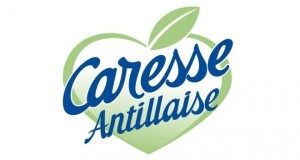A sample text widget
Etiam pulvinar consectetur dolor sed malesuada. Ut convallis
euismod dolor nec pretium. Nunc ut tristique massa.
Nam sodales mi vitae dolor ullamcorper et vulputate enim accumsan.
Morbi orci magna, tincidunt vitae molestie nec, molestie at mi. Nulla nulla lorem,
suscipit in posuere in, interdum non magna.
|
Last month a Paris appeals court annulled some €3.9 million (US$5.2M) in fines imposed on endive producers and their trade associations by the French Competition Authority (the Autorité de la concurrence). Not dissuaded, that French competition agency just slapped a €1.6M (US$2.1M) fine on Caribbean yogurt maker Societe Nouvelle des Yaourts de Littee (SNYL) for falsely questioning the safety and quality of a rival brand in Martinique and Guadeloupe, characterizing the practice as “abuse of dominance” in the marketplace. 
This epitomizes a fundamental disconnect between antitrust law and competition policy in the U.S. and that of many other nations. (No, the French are not alone…) American antitrust principles and decisions generally limit the reach of competition law — aside from competitor collision like price-fixing cartels — to business conduct that uses market power in an exclusionary manner. As the Supreme Court emphasized in 1993, “[e]ven an act of pure malice by one business competitor against another does not, without more, state a claim under the federal antitrust laws; those laws do not create a federal law of unfair competition or ‘purport to afford remedies for all torts committed by or against persons engaged in interstate commerce.'” In sharp contrast, the FCA reasoned about yogurt that “the dissemination of misleading and disparaging remarks by a dominant operator against one of its competitors is a serious practice with regard to competition rules.”
“Between December 2007 and December 2009, SNYL broadcast information discrediting the sanitary quality of Laiterie de Saint-Malo products using the questionable results of bacteriological tests and questioning the irregular consumption deadlines affixed to its products,” the FCA reported in a (translated) statement. This led a number of retailers to pull Malo products from shelves for an extended period. “This behavior had the effect of limiting product sales of Laiterie de Saint-Malo in Martinique and Guadeloupe — an abuse of dominant position prohibited by Article L 420-2 of the Commercial Code,” the FCA concluded.
In the United States, legal standards for proving antitrust claims are rightly rigorous; they are strict in order to reduce the risk that enforcement of the antitrust laws may chill the very sort of vigorous, competitive conduct they are intended to encourage. It’s been true forat least 35 years that the Sherman Act “is not a panacea for all evils that may infect business life.” Legendary antitrust law scholars Phillip Areeda and Herbert Hovenkamp have advocated a nearly insurmountable presumption against deception and fraud serving as the basis for a monopolization claim, a presumption most courts have readily embraced. As one court of appeals cogently explained, “[i]solated tortious activity alone does not constitute exclusionary conduct for purposes of a [Sherman Act] § 2 violation, absent a significant and more than a temporary effect on competition, and not merely on a competitor or customer…. Business torts will be violative of § 2 only in ‘rare gross cases.’”
The difference is that between competition and consumer protection, which are quite distinct concepts in American jurisprudence. If a firm uses a monopoly to harm competition without business justification, that’s an antitrust violation. If a firm lies about a competitor’s products or runs false advertising, that’s a deceptive business practice. The two legal regimes are directed at different constituencies and conduct, which is why the Federal Trade Commission Act was amended in the 1930s to add a separate provision (Section 5) for “unfair or deceptive” business practices, and why the FTC accordingly is separated into its two principal divisions: the Bureau of Competition and the Bureau of Consumer Protection. Likewise, the Lanham Act specifically prohibits false advertising and provides a damages remedy for injured companies. Thus, false representations around a firm’s own, or it’s competitor’s, products can be legally actionable, as the Supreme Court again ruled this year in a case about beverage labeling (Pom Wonderful v. Coca-Cola). They’re just not an antitrust violation in the United States.
Continue reading There Go the French Again On Competition
With the controversy surrounding the International Telecommunications Union (a UN treaty organization) just recently subsiding, it is time to take a look at Internet governance from a different perspective. We all know that laws and legal principles differ among countries. What many do not realize is that these laws — most completely non-tech oriented — are having a massive and negative impact on Internet innovation.
In America we proudly have the First Amendment, the fair use doctrine and the DMCA. The first limits the reach of liability for libel (defamation) at least to cases, for non-celebrities, where a publisher is at fault (i.e., negligent). Section 230 of the last allows ISPs, websites and Internet hosts a legal safe harbor from copyright and other legal offenses resulting from user-generated content or any other content that a customer, client or some third-party has published. These landmark legal regimes are hallowed in the U.S., for instance used to strike down overreaching Web censorship efforts by federal government. Fair use, in turn, permits non-commercial or transformative use of a portion of copyrighted content. Think Google image search thumbnails or blockquotes from a news source in someone’s blog or a movie clip in a televised review.
Things are very different elsewhere. Three cases in point.
- In Germany and perhaps soon other EU nations, search engines that display snippets of indexed Web pages in response to user queries are now by statute responsible for paying copyright royalties to the original publisher, regardless of whether the content owner charges for its stories with a paywall.
- In France, Italy, Ireland, Australia and now Japan, courts permit individuals to recover for libel based on autocomplete and search results that return incorrect or harmful personal information, but against the search provider, not the writer or content publisher.
- A Denmark court ruled deep linking illegal, as did Germany, leading some to believe that linking to a website other than the front page was illegal throughout Europe. While the German courts overturned that decision, it was Agence France Presse (AFP) which eventually sued Google News for brazenly daring to send search traffic to the organization’s news articles.
 These results are foreign, literally, to U.S. jurisprudence. But they also illustrate a vitally important point. Legal regimes that have nothing to do with the Web are being applied in ways which upset existing services users take for granted and that threaten to impede future innovation. Linking is inherent in HTML and represents the essence of the Web. No one in America would argue seriously today that a hypertext URL link represents copyright violation. Search “autocomplete,” in turn, is not a creative activity, but a very useful technical advancement; it applies computer algorithms based on past searches to predict what the current user wants to see, speeding the retrieval of information from the Web. These results are foreign, literally, to U.S. jurisprudence. But they also illustrate a vitally important point. Legal regimes that have nothing to do with the Web are being applied in ways which upset existing services users take for granted and that threaten to impede future innovation. Linking is inherent in HTML and represents the essence of the Web. No one in America would argue seriously today that a hypertext URL link represents copyright violation. Search “autocomplete,” in turn, is not a creative activity, but a very useful technical advancement; it applies computer algorithms based on past searches to predict what the current user wants to see, speeding the retrieval of information from the Web.
Permitting autocomplete defamation suits against Google or Bing because other Web users have searched for information that damages an individual’s reputation is alien to our American way of thinking. It’s censoring completely accurate factual information about stuff on the Web, although that stuff may itself be factually wrong. The augmentation of liability is also just plain silly, because both autocomplete queries and search results themselves merely return an indexed link to something someone else has posted on the Web.
Continue reading Defamation, Autocomplete And Search Royalties: How Not To Govern the Internet
This post illustrates that even countries with legal traditions very different from that of the United States can teach Americans something about values. In France, criminal investigations follow the “j’accuse” model, under the Code pénal, where a single judge — known as the Juge d’Instruction — controls investigation and charging of suspects, and under which a defendant’s silence can be held against him and the burden of proof is far less than the “beyond a reasonable doubt” standard required here. France has also taken a rather different approach to civil law on the Internet, for instance holding Yahoo! liable for anti-semitic postings by users.
But these differences also go in another direction. Several weeks ago the French Assembly passed a measure, known as the “three strikes” law, that required ISPs to terminate Internet access for users found to have downloaded copyrighted materials at least three times. That law has now been set aside as unconstitutional (yes, France actually has a constitution!) by the French courts.
The French Constitutional Council ruled Wednesday that the law’s reliance on the government committee to make decisions on when to cut off people’s Internet access made it incompatible with the French Constitution. Since the “Internet is an element of freedom of speech and the right to consume,” only a judge has the power to deprive someone of it, according to the decision.
As a result, the law will be enacted without the “third-strike” of cutting off Internet access. Instead the government agency only will be permitted to send out mail and email warnings to suspected pirates. If it wants to further sanction an alleged illegal downloader, it will have to go to court.
Sarkozy’s Web-Piracy Fight Dealt Blow [WSJ.com].
While the decision rests ultimately on what we in the U.S. would term separation-of-powers, namely the relationship among different branches of government, it also introduces a concept completely alien to the American legal system. Although the Declaration of Independence starts with several self-evident truths, “liberty” and the First Amendment have never been interpreted to protect a “fundamental right” to communicate via the Internet, let alone break copyright laws. So in the U.S., a government agency can access one’s Internet usage from an ISP without a warrant (and sometimes without a subpoena) and a subscriber’s relationship with his or her ISP is a creature of private contract, not statutory, let alone constitutional, protection.
I am not suggesting that America adopt any or all of the French code-based legal system. What I believe this shows, however, is that even cultures which most Americans would regard as less concerned with the basic freedoms of its citizens — Americans would never stand for a system under which prosecutor and judge were combined in a single agency, judge or other government official — can teach us something about the values underlying the legal relationship of people to their government. Here in America we are blessed with constitutional rights. But basic human needs, like housing, jobs and medical care, are not a legal right. Internet access is very important to success in today’s economy, and I for one suggest that perhaps a debate on whether relegating that issue to the private, unilateral terms of service (ToS) of ISPs and Web site operators is a paradigm that is unlikely to be successful in the long term.
Goodbye “freedom fries.” You Frenchies aren’t so bad after all.
|
|


